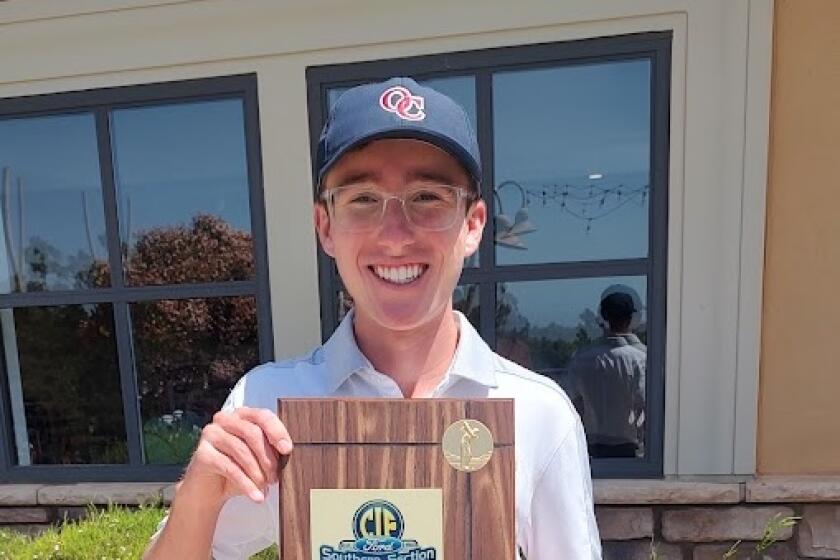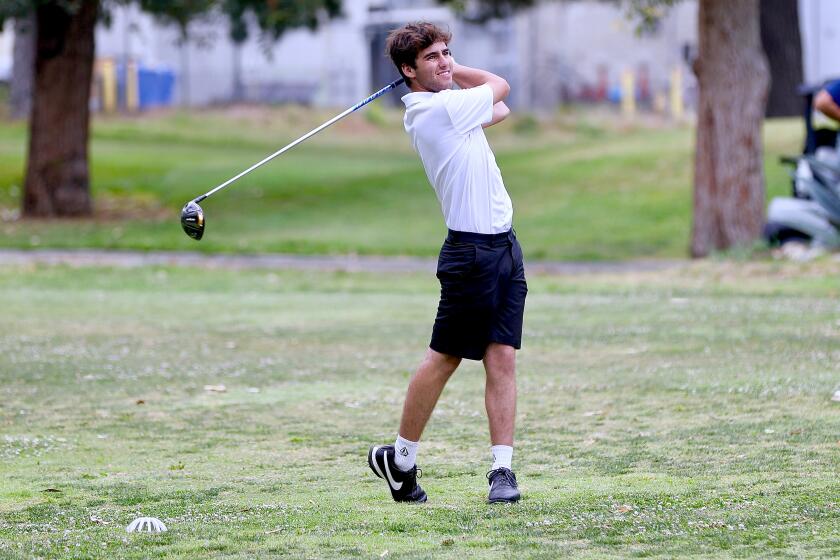It May Be Fourth and Long for SMU Athletics
From 1980 to 1984, Southern Methodist University, a small, pristine liberal arts school in Dallas, sent its football team to bowls four times and ranked in the top 10 twice. Football brought SMU recognition, pride and donations. It also brought trouble.
As it prepared to celebrate its 75th year last summer, Southern Methodist University was ready to brag--about increases in student board scores, about faculty recruiting coups, about coveted research grants.
Bill Clements, the chairman of the school’s board of governors, boasted in a local magazine: “We are on a plateau just below the final step of achievement at SMU. We are now talking in terms of SMU in the future as being at the same level as a Duke or a Stanford.”
But the autumn of SMU’s enchantment has turned into the winter of SMU’s discontent.
University President L. Donald Shields has resigned. The athletic director and football coach are gone, too. The football program, once a national powerhouse, may be the first to face the NCAA’s so-called “death penalty.”
The faculty senate has, in the words of one football player, “gone wild.” And some students are even complaining that the value of their degrees has diminished.
The reason? Big-time college athletics run amok.
SMU, one of the most penalized schools in the history of the NCAA, has been accused of breaking the rules again, while still serving its latest probation.
And on this well-clipped campus, the sudden outcry seems to be that seven times is one time too many, that the days of competing for national championships, at least in football, are over.
Said Clements, who was elected governor of Texas Nov. 4: “I’m tired of all this monkey business.”
He also said that he was “dead serious” about the possibility of abolishing the football program.
What is happening at the Southwest Conference school is a whole re-examination of school and sports, and some here predict the same soul-searching will happen elsewhere.
The debate has encompassed everything from athletic scholarships to over-zealous alumni, from the city’s passion for football to the school’s passion for integrity. The two, some have concluded, are no longer compatible.
“Being seen as a football school means not being taken seriously as an academic institution,” said A. Serge Kappler, a philosophy professor.
“The real university shares little with the SMU football team beyond symbols and campus space,” said Carter Murphy, an economics professor. “Now, during the university’s 75th anniversary year, SMU’s leaders should consider again whether the public is ready to support a university in Dallas that is noteworthy because it is academically outstanding, rather than because it showcases pre-professional athletes.”
It began Nov. 13, when Dallas television station WFAA aired a 40-minute report in which former SMU linebacker David Stanley said he had received $25,000 to sign with SMU and that he and his mother had received $750 a month, some of it mailed in university envelopes.
The next day, the Dallas Morning News reported that tight end Albert Reese was receiving a rent-free apartment from an SMU booster, who also paid utility bills. Reese, who claims he paid for the apartment, was suspended for the season’s last two games.
SMU is in the second year of a three-year probation for recruiting violations. The booster involved in Reese’s apartment, George Owen, is one of four boosters banned for life from associating with the university by Shields.
SMU and Owen denied any impropriety, but the allegations had a swift impact.
On Nov. 19, a resolution drafted by Kappler calling for “the immediate, unconditional and permanent abolition of quasi-professional athletics” was approved by the faculty senate and signed by 200 professors.
Two days later, Shields, himself a football fanatic, announced his resignation because of declining health aggravated by the controversy.
In the next two weeks, the school’s board of governors announced an end to special admissions policies for football players, and Athletic Director Bob Hitch and football Coach Bobby Collins resigned.
The outcry quickly moved beyond the role of boosters in athletics to the role of athletes themselves.
“This takes away from the business of the university, and it’s pretty seamy stuff,” senate President Leroy Howe said. “In order to run a big-time athletic program, you have to recruit semi-professionals, bring them on campus when they really don’t have any academic interests, and make a mockery of the system. People aren’t willing to pay the price any longer.”
Not all agree, of course.
Football player Craig Kennington protested at a public forum about the continuation of special admissions for arts students and children of members of the board of governors.
“The whole bottom of this whole situation fell out when Dr. Shields left the campus,” he said. “That left a lack of leadership and let the faculty go wild.”
David Lott, a booster club board member, says the faculty is being unrealistic. “Quit talking about being less competitive,” he said. “We live in a can-do city. We are part of a city, state and culture where football is an important part of life, and you are not going to change the role of sports in society.”
A panel will examine SMU’s football future and make a recommendation to the board of governors. Another panel will search for a new university president. And the NCAA will investigate the allegations.
If found guilty, SMU could be the first school penalized with the new two-year suspension rule, called a death penalty.
Whatever happens, those on campus fear a lasting fallout. And the admissions office fears that applications will fall off because of the scandal.
“A part of a college choice is emotional,” Admissions Director Andrew Bryant said. “The fact is students, especially in the Dallas area, are being bombarded with negative publicity, and that’s going to have a negative influence.”
As wintry weather and final exams chilled the campus, most were left with at least one question whose answer wasn’t found in any textbook: How could it happen again?
“SMU is not an institution whose athletic program the last five years has been out of control,” said Lonnie Kliever, a religion professor and SMU’s faculty representative to the NCAA.
“If there are any findings against SMU, it’s an indication that a program can be under control and still not solve every problem and avoid every mistake.
“I think it’s a sport-in-society problem and it’s exaggerated in Texas in general and in Dallas in particular.”
Get our high school sports newsletter
Prep Rally is devoted to the SoCal high school sports experience, bringing you scores, stories and a behind-the-scenes look at what makes prep sports so popular.
You may occasionally receive promotional content from the Los Angeles Times.


